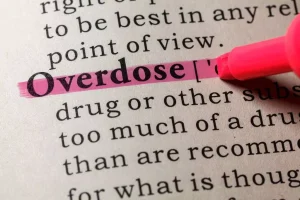Alcohol NYC Health

An exciting part of this period is that it can lead you to a happier life full of welcomed change and constant improvement. People often need to address past trauma or familial issues during this time. According to the National Institute on Alcohol Abuse and Alcoholism (NIAAA), recovery is a process that involves remission from AUD and quitting heavy drinking for good.
What Does the Term “Gateway Drug” Mean?
- Here are some steps to improve life expectancy, tips for maintaining sobriety, and the importance of building a supportive network.
- Late-stage, or end-stage alcoholism, is a full-blown addiction to alcohol, often with damaging physical and mental health effects.
- These stages can help prevent relapse and support people to live healthier, fuller lives.
- Providing support and resources to individuals with alcoholism is vital in their recovery process.
- The early or adaptive stage of alcoholism marks the beginning of an alcoholic’s struggle with addiction.
“The one-year mark is when your overall risk of different cancers has leveled off,” says Dr. Mosquera. “Your relationships are likely improved, and your resilience has increased,” says Dr. Mosquera. By following these steps, individuals can significantly improve their life expectancy and overall quality of life.
End-Stage Alcoholism: Signs, Symptoms, Management
While the process may take several years, the outcome is a happier, healthier life where you have the freedom to fulfill your full potential. Some people may feel so “broken” that they almost feel they can no longer experience joy and confidence, or have healthy relationships again. While the abstinence stage of withdrawal causes mostly physical symptoms, post-acute withdrawal is very psychological and emotional. During this stage, most people focus their energy on coping with cravings and resisting the urge to drink. A heavy drinker may drink more frequently or drink excessive amounts when drinking socially. To others, the person may not look like they have a problem with alcohol.
Is drinking some alcohol better than not drinking it at all?

Discover strategies, celebrate successes, and encourage others along the way. Expert strategies to address substance use and spring break concerns with your https://ecosoberhouse.com/ college kid. Clinical evidence suggests that the most common causes of relapse during this stage are neglecting self-care or not attending self-help groups.
- During end-stage alcoholism, a person may struggle with involuntary rapid eye movement (nystagmus) or weakness and paralysis of the eye muscles due to thiamin (vitamin B1) deficiency.
- In the beginning stages of alcoholism, drinking escalates and the individual develops an increased tolerance for alcohol.
- Strong cravings for alcohol are typical at this stage, and drinking isn’t just for enjoyment anymore.
Building a Supportive Network

To improve outcomes and increase life expectancy, early intervention and treatment options are crucial. Addressing alcoholism through interventions such as counseling, support groups, and medical assistance can help individuals regain control over their lives and improve their overall health outcomes. It is essential to raise awareness and provide resources to prevent and address alcohol use disorder, as it has a significant impact on both individuals and society as a whole. Alcoholism has a profound impact on the body, leading to various health consequences that can significantly affect life expectancy. Prolonged and excessive alcohol consumption can lead to liver damage, such as alcoholic hepatitis, cirrhosis, and liver cancer.
- These co-occurring conditions can worsen the overall health of individuals and contribute to a shorter life expectancy.
- They tend to have a higher incidence of depression, anxiety, stress, and lower self-esteem.
- As their reliance on alcohol increases, you may begin to notice that your loved one downplays the role alcohol has in their lives and makes excuses for their actions, especially their drinking.
Research has shown that the life expectancy of individuals with alcohol use disorder can be significantly shorter compared to those without the disorder. However, it’s important to note that individual circumstances and factors such as co-occurring medical conditions and lifestyle choices can further influence life expectancy. End-stage alcoholism, or late-stage alcoholism, is the final stage of an alcohol use disorder, resulting in serious physical and mental conditions as well as other life consequences from years of alcohol misuse. Alcoholism not only takes a toll on physical health but also has a profound impact on relationships and emotional well-being. The social and emotional consequences of alcoholism can be devastating, affecting both the individual struggling with alcohol abuse and their loved ones. It is essential to recognize and address the health consequences of alcoholism, as early intervention and support can significantly improve outcomes.
Helping children make friends: What parents can do

The exact mechanisms by which alcohol contributes to the development of cancer are complex and multifactorial. However, it is believed that alcohol can damage DNA, impair the body’s ability to repair damaged cells, and increase the production of harmful chemicals that can lead to cancer formation. The Alcohol Surveillance and Epidemiology Program works in partnership with the New York State Office of Addiction Services and Supports (OASAS). Importantly, we found that when both parents drank, the effects on their offspring were worse than when only one parent consumed alcohol. For example, we observed a threefold increase in age-related liver scarring when both parents consumed alcohol. My lab’s recently published research shows that chronic alcohol use from both parents has an enduring effect on the next generation by causing their offspring to age faster and become more susceptible to disease.

Non-Alcoholic Holiday Drink Recipes To Try

Seeking treatment and building a supportive network can help individuals overcome alcoholism and improve their well-being. Building a strong support system that includes family members, friends, mental health professionals, and support groups can also make a significant difference in maintaining sobriety. Moreover, alcoholism can also lead to neurological disorders, including cognitive impairment and increased risk of dementia. Additionally, compromised immune function due to alcohol abuse makes individuals more susceptible to infections and other serious health complications.
A new study could change what’s considered moderate drinking
Instead, they come from other people, from those lovely conversations we share over a glass or three of wine. These are all important hypotheses, the sort of speculations that assuage this drinker’s heart. They found people who drank the equivalent of about five to 10 drinks a week could shorten their lives by up to six months. how long do alcoholics live And they warned that people who drink more than 18 drinks a week could lose four to five years of their lives. Regularly drinking above the UK alcohol guidelines can take years off your life, according to a major report. Explore the opioid epidemic and drugs in America — understand addiction and discover paths to recovery.
For females, it means consuming 4 or more standard drinks over the same time frame. This is a comparatively non-threatening level of drinking, which may not always lead to alcohol abuse. Being at a later stage can make recovery more challenging, but recovery is possible at any stage of alcoholism. The safest course of action is to seek treatment in a professional environment that is catered to the individual needs, preferably with holistic treatment.
